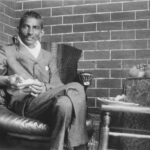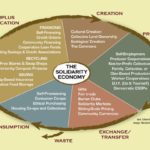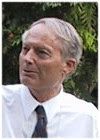Articles by Prof. Howard Richards
We found 14 results.
Dignity & Humiliation
Prof. Howard Richards - TRANSCEND Media Service,
20 Feb 2023
Acceptance of the Lifetime Commitment Award from the Human Dignity and Humiliation Studies Association
→ read full articleTheoretical Note: John Maynard Keynes vs. Milton Friedman
Prof. Howard Richards – TRANSCEND Media Service,
3 Aug 2020
The thesis of this note is that what is most important about Keynes was that he called attention to staggering features of the basic structure, namely the chronic insufficiency of effective demand and the chronic insufficiency of the inducement to invest. What is most important to extrapolate from Keynes survives the falsification of some of his empirical claims.
→ read full articleGandhi’s Economics: Practical Ethics for Systemic Transformation
Prof. Howard Richards – TRANSCEND Media Service,
2 Dec 2019
Here the concept of basic cultural structure is used to argue that Gandhi, with deep roots in a different basic cultural structure, is able to offer a deeper and in the end more realistic critique of, and alternative to, neoliberalism than critiques that remain within the basic cultural structure of modernity. Why have moral economies failed to materialize? Is it now too late to prevent inevitable irreparable disastrous ecocide? Is it really true that by practicing the ideals of Gandhi and other great moral exemplars we are contributing to building a peaceful, just and sustainable world?’
→ read full articleSolidarity Economics: An Idea Whose Time Has Come
Prof. Howard Richards – TRANSCEND Media Service,
26 Nov 2018
When we are dealing with socially created realities we should bear in mind that the ways people think about the problems create them. If people are going to solve the problems, they need to think differently. Solidarity economics redefines the problems. The Roman Law iron cage of European “civilization” has got to go. Europe must demote itself to the status of a peninsula of Asia whose savants are no wiser than Gandhi, Confucius, Julius Nyerere, Nelson Mandela or Paulo Freire. Many pioneers are developing alternative economies.
→ read full articleFollowing Foucault: The Trail of the Fox
Prof. Howard Richards – TRANSCEND Media Service,
2 Apr 2018
A Kindle E Book on Amazon – by Howard Richards, with Catherine Odora Hoppers and Evelin Lindner, with a Foreword by Magnus Haavelsrud.‘I found this a truly fascinating work: timely, original, dynamic. There is such a huge secondary literature on Foucault; one is almost sceptical about new additions to the corpus. This, however, is certainly worth the read; partly because of the ways it also counters and contradicts many accepted ways of reading Foucault, especially on power.’
→ read full articleA General Solution to Economic Problems
Prof. Howard Richards – TRANSCEND Media Service,
12 Jun 2017
I refer to the unsolved ones, not to those that are pretty satisfactorily solved already. I focus on our two acronyms SF1 and SF2, where SF can be read as Staggering Fact or as Structural Fact.
→ read full articleOn the Intransitive Objects of the Social (or Human) Sciences
Prof. Howard Richards – TRANSCEND Media Service,
22 May 2017
Jan 2017 – When Roy Bhaskar first introduced his concept of intransitive objects of knowledge in A Realist Theory of Science, his first examples of such objects were the specific gravity of mercury, the process of electrolysis, the mechanism of light propagation, sound and heavy bodies falling to earth. Such objects would continue to exist in a world where there was no science to know them. In such a world, which has existed in the past and which might come again, the causal laws that science has now discovered would prevail in the absence of knowledge of them.
→ read full articleHow to Save the World from Fascism and Meet Human Needs in Harmony with Nature
Prof. Howard Richards – TRANSCEND Media Service,
20 Feb 2017
President Franklin Roosevelt had declared that America was fighting for the Four Freedoms: speech, worship, from want, and from fear. Jack wrote home that the U.S. troops in Europe were called “The Four Freedoms Boys.” First Lady Eleanor Roosevelt would soon play a leading role in drafting a Universal Declaration of Human Rights that would establish social rights to education, health care, employment, and social security in old age.
→ read full articleKeynes’ Limitations and Trump’s Disasters
Prof. Howard Richards – TRANSCEND Media Service,
5 Dec 2016
My recommended way forward will be to deepen Keynes’ macroeconomic analysis to make it an historical analysis of social structure leading to a communitarian reformulation of social and economic democracy. This theoretical move supports a flexible approach to practice called “unbounded organization.”
→ read full article(Castellano) Una Propuesta Muy Importante de José Luis Corragio
Prof. Howard Richards – TRANSCEND Media Service,
28 Nov 2016
Aunque parezca una exageración, creo que señala una pista a seguir para salvar a la humanidad del caos social y para salvar la biosfera de la extinción. Es muy importante.
→ read full article(Castellano) ¿Hay una Crisis Chilena?
Prof. Howard Richards – TRANSCEND Media Service,
10 Oct 2016
6 Oct 2016 – “Chile vive una muy profunda crisis de confianza de todas las instituciones.” La opinión arriba citada no es la opinión de cualquiera. Es la opinión de quien fue el Ministro de Economía en la transición del gobierno militar al gobierno civil de 1990.
→ read full article(Castellano) Las Bajas Jubilaciones en Chile
Prof. Howard Richards – TRANSCEND Media Service,
12 Sep 2016
“Nuestro mayor problema político es la falta de imaginación”. –Michel Foucault ~ La apuesta de la economía social y solidaria es que la misma lógica cálida que rescata a los victimas del sistema es capaz de transformar el sistema.
→ read full articleEconomic Theory and Community Development – An Exercise in Applied Philosophy
Prof. Howard Richards – TRANSCEND Media Service,
19 Oct 2015
The Imaginary World That Holds the Real World Captive
→ read full articleEconomic Theory and Community Development
Prof. Howard Richards – TRANSCEND Media Service,
28 Sep 2015
The discursive strategy of this chapter takes up again a central idea of dominant discourse: the idea that economic growth is and must be the aim of every nation. It seeks to destabilize the basic cultural structure. It seeks to destabilize the inter-related ways of acting, talking and seeing that cement injustice into place and make it immovable. But it does not only destabilize. It also includes a number of constructive proposals.
→ read full article


